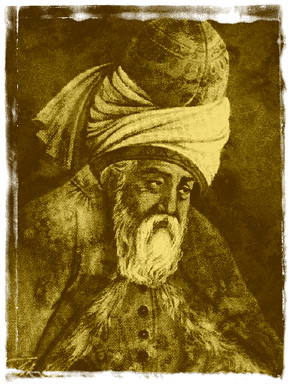Listen!
Listen to the ney
Listen to the one who is giving himself up
Listen to the one is has emptied himself
Listen to the one from whom the voice of Allah is heard
Turn, turn around the meaning of the beloved
Do sema, turn, turn listening to what is being sung
Turn, understanding what is being sung
Turn, turn joining Allah
Who manifest Himself a new every moment
while turning become so pure so beautiful that you
start turning around yourself to
while turning know that the whole universe
even the electrons of an atom
from the tiniest to the greatest of the created
Turn, only to reveal this meaning
sema is for the soul that cannot stand still
Do not sit with the idol get up at once go further
Do not sit lost in your own thoughts
Get up go to where the beloved is
With one foot i am grounded in Sharia
with my other foot i am One with all nations,
I am free, free i am free because i am in love with Allah
I am in love with my Creator,
Slave to no human i am the servant of my love Allah
There is nothing to tie me down
I am free, free, free
They figured the value of my head, my robe and my turban
They were not worth more than a cent
Have you heard my name in this world?
I am Nothing, Nothing, Nothing
As long as i live i am the servant of the Quran
I am the dust under the feet of the Prophet Muhammad
Who ever belongs to God, God belongs to Him
Let yourself go, the ney will guide you to your goal
Demonstrate your love with your actions, your morals,
Be aware of the ways of servant people for the sake of Allah
Feel the pleasure of serving without expectations
Look at those with any faith with the eyes of your soul
From them nothing but a cry of Ya Hayy, or Ya Rabb can be heard
according to their beliefs
Friend I am you and You are me
Don't loose yourself
Don't forget who you are
The one following you like a shadow is me
My friend don't pierce your soul with your own dagger
since you miss the sea let go of being a drop
Since you are me and i am you
what is this talk of me and you
After death comes don't look in to the ground for our grave
Our graves is in the hearts of Areefs
Our graves is in the hearts of Areefs





